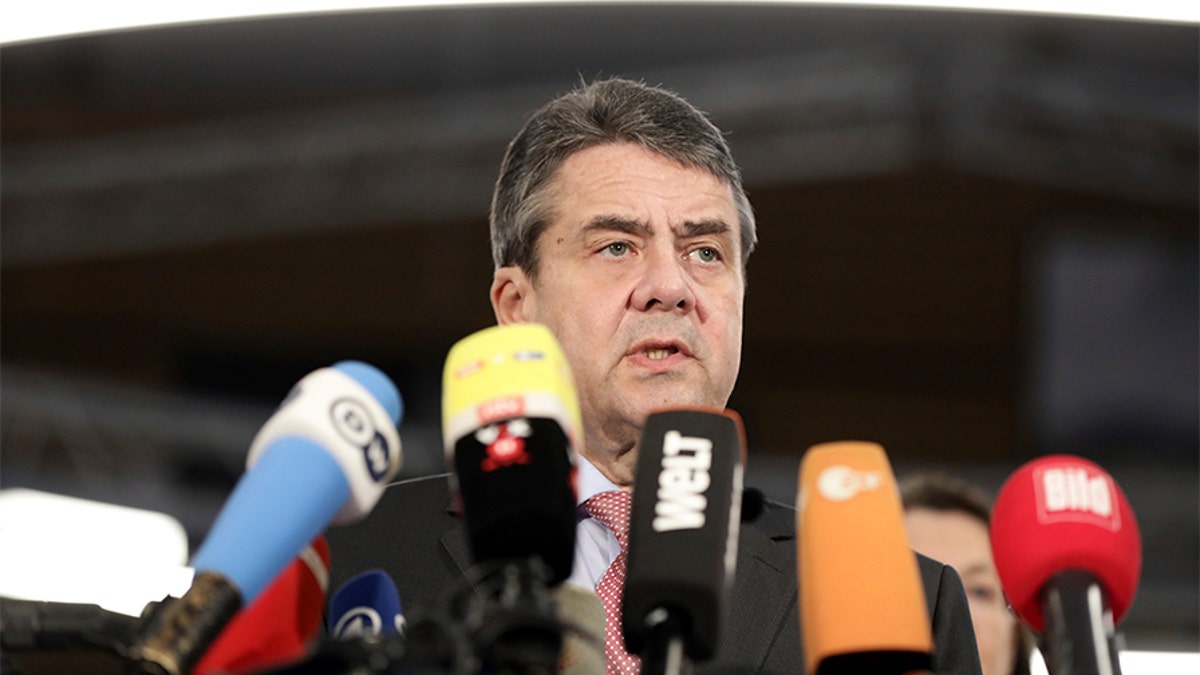
German foreign minister Sigmar Gabriel, delivers a statements about the release of 'Die Welt' journalist Deniz Yucel from prison, in Berlin, Germany, Friday, Feb. 16, 2018. The German reporter detained in Turkey for more than a year was released from jail pending trial, even as six other journalists and newspaper employees were sentenced to life imprisonment by a Turkish court Friday. (Kay Nietfeld/dpa via AP)
Germany's foreign minister said Saturday that his country no longer recognizes “our America” as he slammed President Trump’s "America first" foreign policy.
The official, Sigmar Gabriel, suggested that close U.S. ties with a strong European Union are as much in Washington's interest as they are in Europe's.
Speaking to world leaders and defense officials at the Munich Security Conference, Gabriel said no country in Europe has benefited as much from American help as Germany since World War II.
He said the country "eagerly learned" principles of democracy, multilateralism, international law and free trade from the relationship with the U.S.
"Maybe this can explain why we Germans in particular are so perturbed when we look across the Atlantic — because we no longer recognize our America," Gabriel said. "Is it deeds, is it words, is it tweets we should look at to measure America?"
He urged a return to greater joint cooperation, saying now is not the time for "just pursuing individual national interests."
Gabriel suggested the U.S. was going in the opposite direction, drifting toward approaches taken from powers like China and Russia who are "constantly trying to test or undermine" the European Union.
"It is one thing from possible rivals or competitors, but from our friends and partners we expect that they will respect the unity of the EU," he said. "No one should try to divide the EU, not Russia, not China, but also not the United States."
He warned that neither the EU nor the U.S. can go at it alone and that “we have to count on our friends and our partners.”
Trump's national security adviser, H.R. McMaster, met one-on-one with Gabriel after his speech. McMaster reassured the forum that the United States still is strongly committed to its traditional alliances, but emphasized that "we must all share responsibility."
"International peace and prosperity depends on all nations," McMaster said. "For this reason, President Trump has called for stronger alliances and partnerships based on shared values, shared interests, shared responsibilities and shared burdens."
Trump has pushed strongly for more NATO nations to live up to commitments to spend at least 2 percent of their gross domestic product on defense spending.
The Associated Press contributed to this report.




















